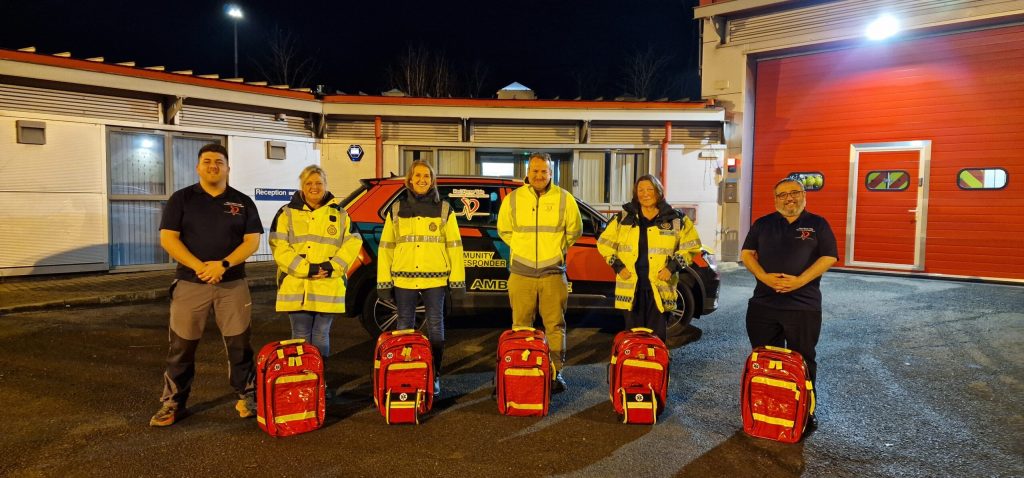
Our Responders
From engineers to retirees, teachers to healthcare professionals – our Responders come from all walks of life, united by a shared commitment to helping others when they call 999. They are trained volunteers who dedicate their time to providing immediate care in medical emergencies, often arriving on scene before an ambulance.
Our team responds to a wide range of life-threatening incidents, including cardiac arrests, strokes, breathing difficulties, seizures, and serious falls. In each case, they deliver essential treatment, provide reassurance, and support patients and their loved ones until an ambulance crew arrives.
But being a Responder is about more than just medical care. It’s about being a calm presence in a moment of fear, offering reassurance to families, and making critical decisions that can change the outcome for someone in need. Responders step away from their families, jobs, and daily lives – in the middle of the night and during special occasions – because they know their presence could mean the difference between life and death.
Through their dedication, our responders are reducing suffering, improving survival rates, and strengthening the resilience of our community. Their commitment ensures that help reaches people faster, giving patients the best possible chance of recovery.
What training and consolidation do they receive?
- Initial Training – They complete their initial training with West Midlands Ambulance Service NHS Trust working towards the Level 3 Award in First Responder on Scene (FROS).
- Mentored Shifts – They then join their assigned team where they undertake at least 2x Mentored shifts with one of our competent Responders on our dedicated response car.
- Continuous Training – Probationary CFRs are able to take part in CPD and in house training with the team, including Level 3 Safeguarding, Mental Health First Aid and Advanced Driving with our partners at IAM.
- Frontline Ambulance Shift – Probationary CFRs might be able to take part in frontline ambulance shifts with colleagues at nearby ambulance stations to gain valuable insights and get hands on. Building relations with our frontline ambulance crews is really important to enable teamwork.
What qualities do CFR’s need? CFR’s meet patients in unpredictable circumstances and need to be ready for anything. These are some of the qualities that our own CFR’s feel are important.
Compassionate and Caring
Dave says
Prepared, Resilient & Dedicated
Barry says
